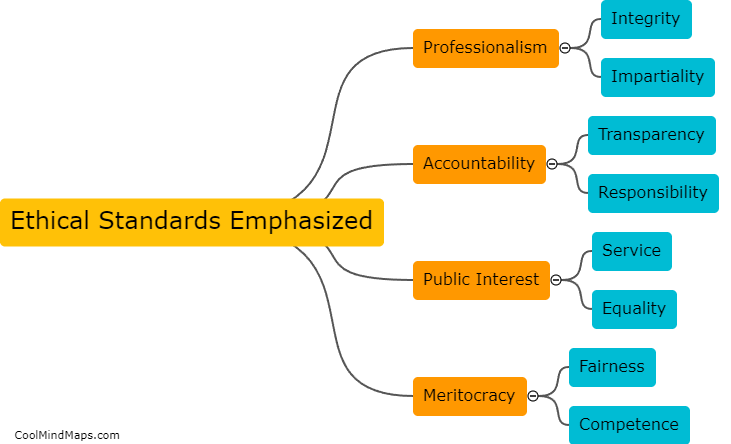What are the ethical standards emphasized by the Civil Service Act 2049?
The Civil Service Act 2049, which governs the functioning and behavior of civil servants in Nepal, emphasizes several ethical standards. Firstly, it emphasizes integrity and impartiality, requiring civil servants to perform their duties with honesty and fairness, free from political or personal bias. It also emphasizes accountability, as civil servants are expected to be responsible for their actions and decisions, and to be transparent in their work to ensure public trust. The Act also promotes professionalism, stating that civil servants should continually strive for excellence and demonstrate a high level of competence in their respective fields. Furthermore, the Act emphasizes the importance of upholding the rule of law, ensuring that civil servants adhere to legal and ethical principles in their decision-making process. It also advocates for the elimination of corruption, requiring civil servants to refrain from engaging in any form of bribery or unethical practices. Overall, the Civil Service Act 2049 emphasizes the importance of ethical behavior and upholding public trust in the civil service of Nepal.

This mind map was published on 27 November 2023 and has been viewed 81 times.











